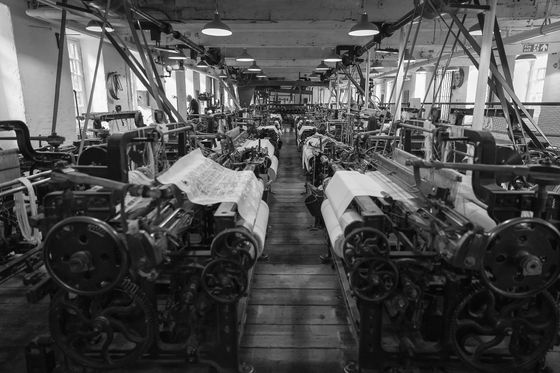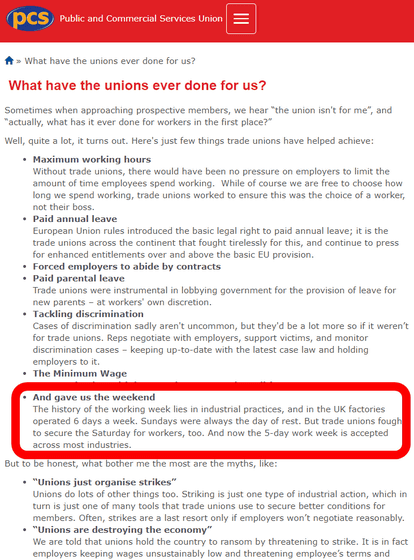How did the two-day work week start and spread?

By
Many parts of the world have adopted a 'full two-day work week', with Saturday and Sunday as holidays. On the other hand, in recent years, some companies have adopted the “3 days a week, 4 days a week work system”, and discussions on life-work balance have become active. However, it took a long time for the two-day break to take root, says Brad Beven, a professor of socio-cultural history at the University of Portsmouth in the UK.
History of the two-day weekend offers lessons for today's calls for a four-day week
https://theconversation.com/history-of-the-two-day-weekend-offers-lessons-for-todays-calls-for-a-four-day-week-127382
Prof. Beven explained that 'Saturday and Sunday as holidays' is a relatively modern phenomenon, and its origin was in England in the 19th century. In 1817, businessman and revolutionary Robert Owen advocated `` 8 hours for work, 8 hours for rest, 8 hours for what I wanted to do, '' from 10 hours to 16 hours, which was average in Britain at the time. Objected to working hours. After such a movement, the British government enacted a factory law in 1833. The law prohibits child labor under the age of 9, and limits working hours between the ages of 9 and 18 to no more than 69 hours a week, except on Sundays, which are religious Sabbaths . At that time, working six days a week was common.

by
However, a combination of factors is changing the way people work in England. According to Professor Beven, the idea was 'Holy Monday'. Experts at the time had the quota of 'finish the product by the weekend', and the delivery date was often set every Saturday. The skilled worker worked late Saturday night and occasionally worked overtime on Sunday, thus becoming the 'Monday rest' work style. This is the origin of “Holy Monday”. This work style has become increasingly popular, with commercial facilities such as music venues and theaters holding events on Monday.
Religious groups and trade unions, on the other hand, were also eager to 'increase holidays.' According to Professor Beven, religious groups have claimed that the working class would 'improve mentally and morally' if Saturday is a holiday. One union insisted on increasing holidays for the benefit of workers. Even today, the public and commercial services union, a 200,000-participating British union, has cited 'increased holidays' as one of the union's brilliant achievements.

In 1842, the
In response to the early weekend union movement, other unions and prohibition groups also joined the movement, seeing it as an opportunity to change the impression of workers. At the time, barbaric sports such as drunk workers and cockfighting were common on Monday, so factory workers were of lower social status. Under these circumstances, trade unions and prohibition groups recommended that Saturday afternoon breaks be used for 'reasonable recreation.'

By Bonnie Kittle
The leisure industry, which was growing rapidly throughout the UK, saw Saturday afternoon breaks as a business opportunity, and each company launched a campaign. Discount tickets for those who return home from Saturday afternoon also appear. The most influential of these campaigns was the decision to host a soccer game on Saturday afternoon, says Dr. Beven. The decision was made in the 1890s and further promoted the leisure industry.
It was up to the factory to decide whether or not to allow a Saturday afternoon holiday, so it took time to 'penetrate'. Professor Beven said that the weekend holiday movement began in the 1840s, but employers, religious groups, the leisure industry, and workers began to consider Saturday afternoon breaks as common. He pointed out the end of the 19th century 50 years later. And this Saturday was a whole holiday in the 1930s, Professor Beven explained that it was found that taking a holiday on Saturday and Sunday reduced worker absenteeism and increased efficiency. .
Related Posts:
in Note, Posted by darkhorse_log







